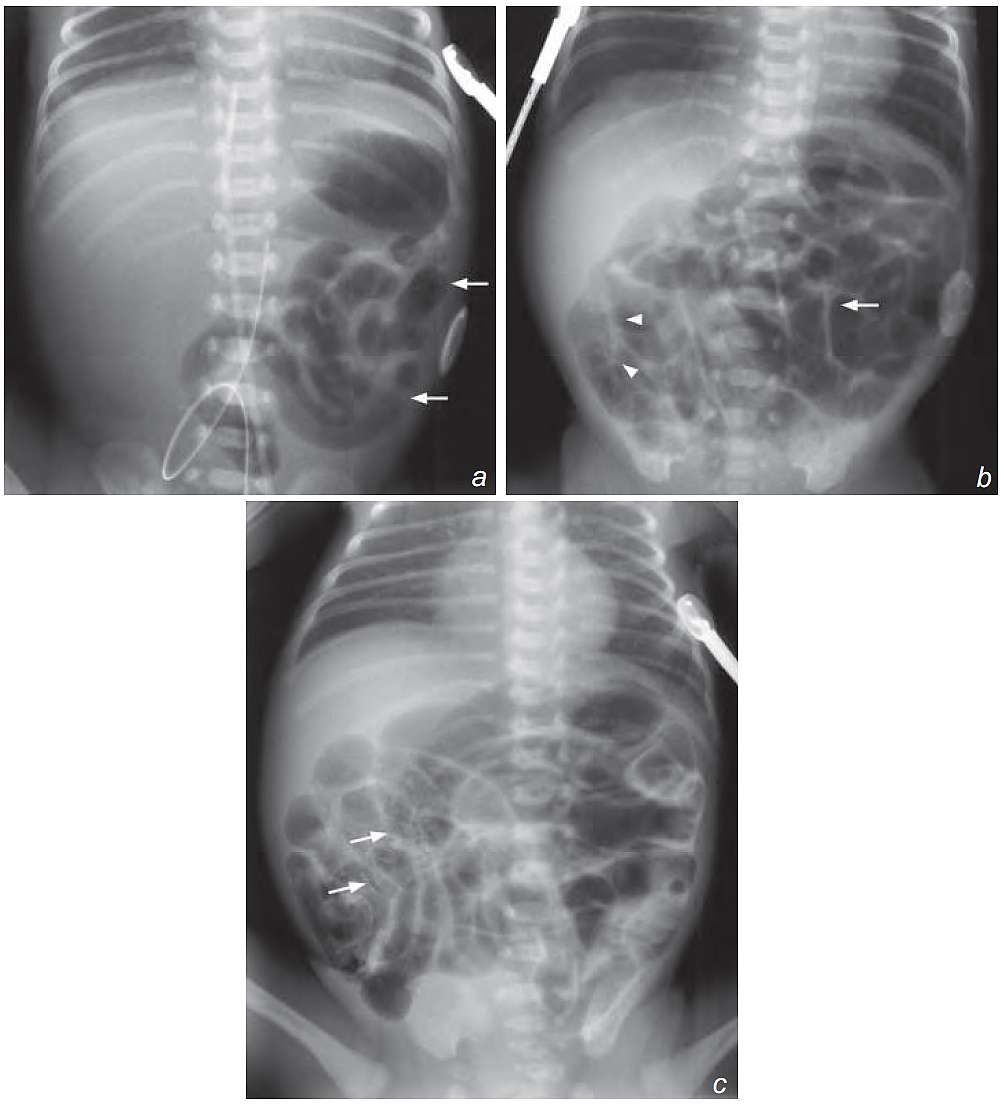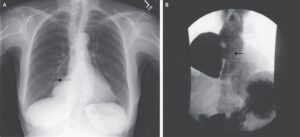This post is an answer to the Case – Premature Neonate with Abdominal Distension and Blood in Stool
Interpretation
- Distended bowel loops in the abdomen – represents ileus which affects terminal ileum first
- Pneumatosis intestinalis – gas within bowel wall
- Bubbly appearance of bowel – due to mixture of intramural gas and faecal material

b) As the disease progresses, dilated bowel loops (arrow) are seen all over the abdomen and ‘sandy foamy’ appearance (arrowheads) due to presence of faeces and intramural gas is noted over the right lower quadrant of the abdomen.
c) Presence of intramural gas (pneumatosis intestinalis) in the ileal bowel loops over right side of the abdomen, causing a bubbly appearance in the terminal ileal loops (arrows)
Necrotizing Enterocolitis – Key Points
- Abdominal distension and blood in stool in a premature neonate raise the suspicion of necrotizing enterocolitis.
- Diagnosis often relies on radiological findings on an abdominal radiograph.
- Dilated bowel loops with pneumatosis intestinalis are typical findings on abdominal radiograph.

